Racism Across State Lines: A Common Enemy
BY LIZ VESTAL | December 16, 2014
Although the word “enemy” comes with a negative connotation, I have learned that a common enemy can bring people together for the better. The common enemy right now is racism, and it is drawing people together from all across the country.
The Ignatian Family Teach-In for Justice occurred a few weeks ago, and I hit the ground running once I returned. Now with the holiday season in full throttle, I am persisting to the end of another semester. Studies and late nights surround me like most years, but this year the holidays are not the only thing on my mind. This year I am still stuck at the Teach-In, reflecting on the conversations that took place, because they are changing how I think about the holidays. Usually I am focused on the holiday menu, but this time around, I am focused on who will be at the table. An impromptu gathering of students holding a conversation about race showed me that it doesn’t matter what food you eat or what you discuss at the table, the most important facet of a meal is who shows up.
In light of the events of the case of Michael Brown, we knew the grand jury decision was imminent as our group from SLU headed to the Teach-In, just weeks before the non-indictment was announced. Anxious to leave campus due to all of the dialogues, protests, and vigils happening around our school, I was eager to get back to SLU before even leaving for Washington, D.C. Once at the Teach-In, however, I realized that St. Louis was not the only university with problems of race.
Two students from Fordham University, Scarly Rodriguez and Sarah Allison, facilitated a presentation titled “Let’s Talk About Race.” Hearing these two girls—best friends and truth-tellers in matters of racism and diversity in their worlds—made a compelling argument as to why we should be talking about race. They brought up thought-provoking concepts such as internalized racial inferiority and internalized racial superiority, which caused me to think about how I approach conversations surrounding race and diversity in my everyday life. These girls encouraged the audience of 1600+ members of the Ignatian family to sit with the discomfort of being put in your place when it comes to acknowledging disparities generated by racial differences and stereotypes.
After their speech, a few members of my group approached these two girls to continue the important discussion of race on our campuses. We arranged to meet up with them for lunch, and to invite others to join in on the dialogue. Little did I expect the experience that was about to follow.
Initially, some fellow Billikens and I entered one of the rooms of our newfound Fordham friend. We sat down with our lunches and some simple introductions with the handful of us. Throughout the next hour, more students from Fordham and SLU joined in, and then students from the University of San Francisco, Fairfield University, and Boston College. We exchanged ideas and resources, frustrations and hopes. We challenged one another in a way that is productive and fruitful, and I was challenged to not only point out the problem, but to strive for a solution. We discussed what it means to be an ally.
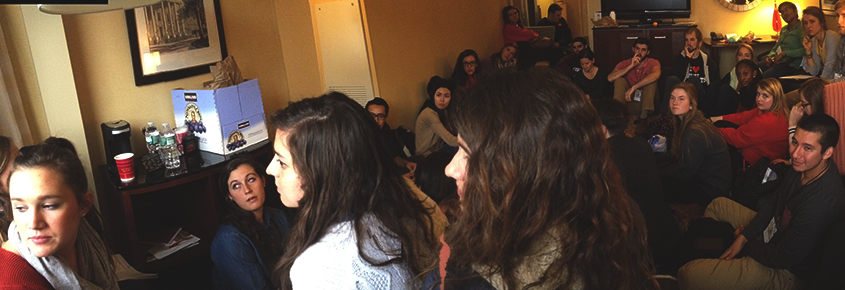
“An impromptu gathering of students holding a conversation about race showed me that it doesn’t matter what food you eat or what you discuss at the table, the most important facet of a meal is who shows up.”
These conversations for me were not simply words left in a room. They stayed with me on the plane ride home and back in my apartment. The power of words, though intangible, can also be invaluable. The fact that conversations like this are happening is truly astounding to me. Yes, we are living in a troubled time; but the fact that we have chosen to come together instead of isolating ourselves speaks volumes to what solidarity can accomplish.
I was reminded of Margaret Mead’s words: “Never doubt that a small group of thoughtful, committed citizens can change the world; indeed, it is the only thing that ever has.” What began as a simple conversation struck up by common interests led to a group of dozens of students from all over the country working to create real change.
Now with the even more recent news of the death of Eric Garner in New York, I find myself in solidarity with my conversational companions and newfound friends from Fordham. With protests and rallies happening all across the country, it has become more and more apparent that no race issue is isolated, but a sign of the times in which we live. Throughout the last month, not one day has gone by without a protest, vigil, or demonstration happening within a few blocks of my apartment. I am sorely convinced that twenty years from now, people in the generation below us will be asking us to tell the tales of the Civil Rights movement of 2014. What will you remember?
This Advent, are we preparing our hearts for what the Lord is calling us to respond to? What exactly does that look like in our friend circles, our families, our campuses, and our communities? Let us look to the places where we can truly generate change. These “small groups” of which Margaret Mead speaks are those groups to which you belong. But with whom are you having these conversations, and who are they excluding? Who could we invite to the table that we don’t even think about when making our guest lists? The Teach-In reminded me to return to a faith that does justice. Our Christian faith calls us to live out a life that has room enough for everyone at the table.
Hey there! I‘m Liz, the SERVE intern this year. I hail from Des Moines, Iowa (it’s cooler than you think, I promise) and am currently a junior studying Theology and Social Work at Saint Louis University. I spent the last semester in Manila, Philippines through the Casa Bayanihan program through the University of San Francisco, with pillars in academics, spirituality, community, and accompaniment. Transitioning back to SLU has been aided through a position as the Social Justice Intern in Campus Ministry, putting on events and bringing people together to discuss issues of social justice around campus and in the St. Louis area. When I’m not doing campus ministry-related activities, you can find me biking long distances, kayaking, baking for friends, drinking Hot Cinnamon Spice tea, or reading nerdy theology texts.




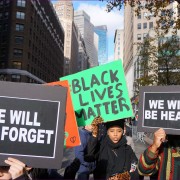
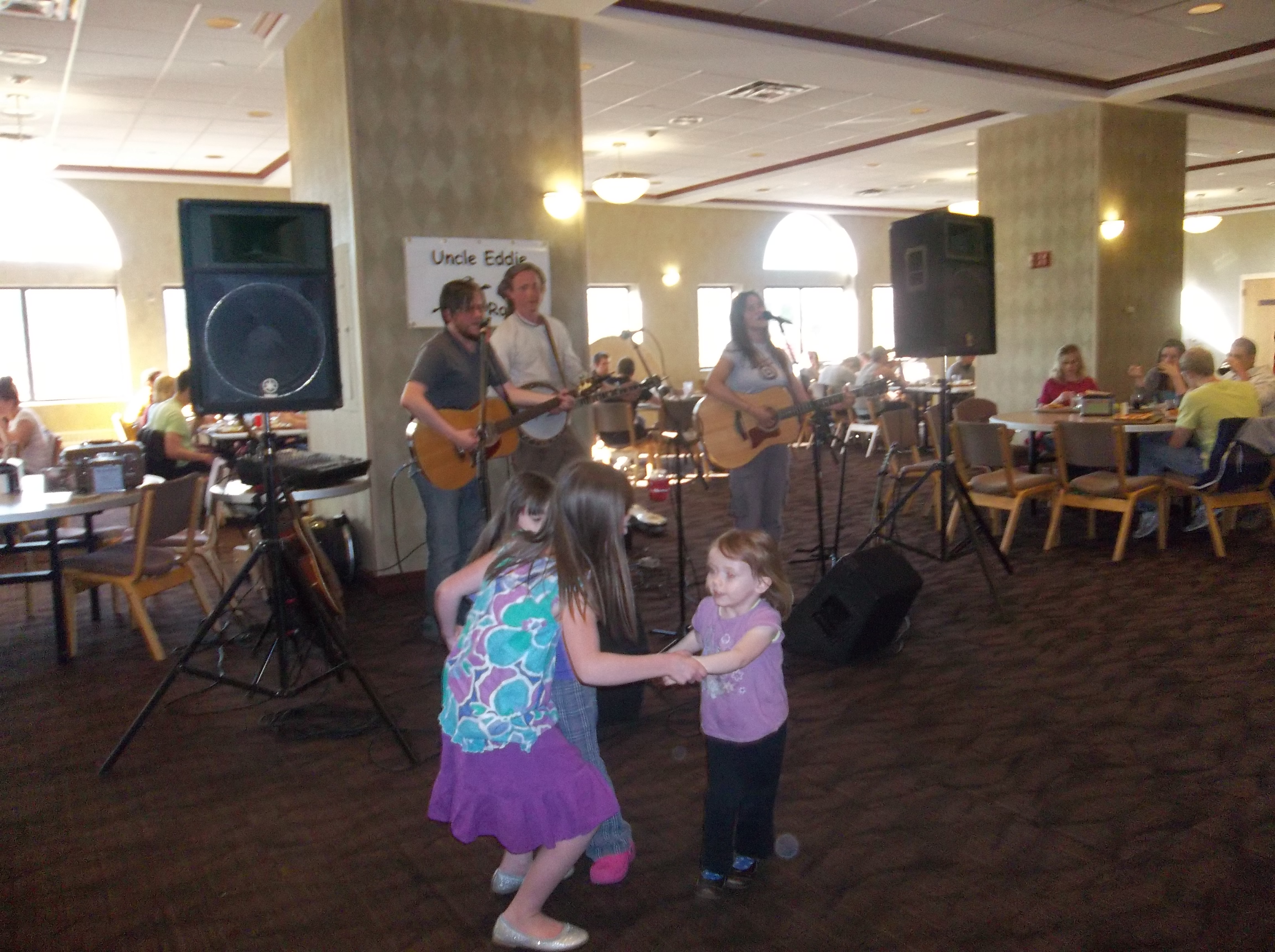
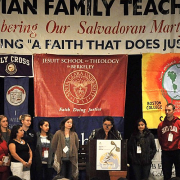

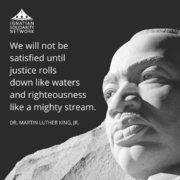



Racism needs to be wiped out from the face of the Earth.